
Not sure about you, but I have often wondered if the Greeks and Romans believed the myths they created regarding their gods or if the stories served more as a form of entertainment. I’m not going to lie. I love studying Greek mythology. If any of my former students or their parents are reading this blog, I’m sure they remember the summer reading assignment of Edith Hamilton’s Mythology. The kids always hated it, but so many references to the myths appear in other literature, a familiarity with them was recommended for the AP Exam. (Plus, I loved to teach them!)
So why do I trust John’s vision of Jesus in Revelation as accurate and truthful as opposed to other mythology? Other myths express nuggets of moral truth. So what makes the Bible real and the others - well - myth?
Before our dive into that question, let me return to Greek and Roman theater. When I tell you there are thousands of ruins of ancient theaters, trust me that I am not exaggerating. Rather than a gas station on every corner, instead, an ancient theater. But think about it. There was no such thing as electricity or the printing press. If you lived back then, what would you do with your free time? What would you do for entertainment?
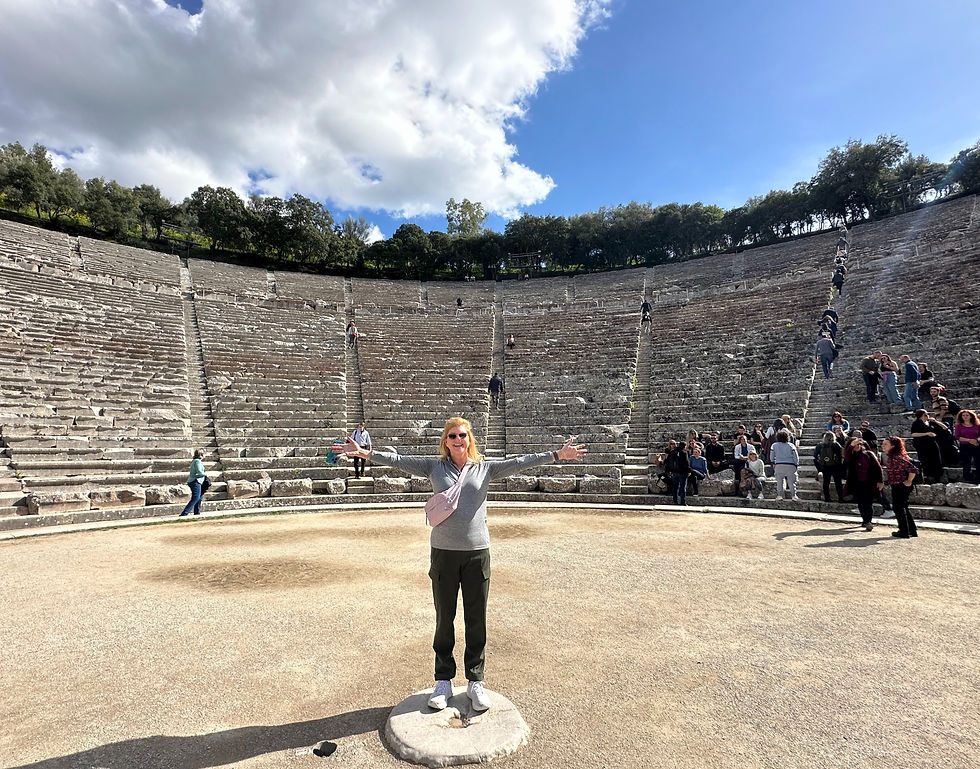
The fact that the ancient Greeks created so much art and literature shaped their unique civilization. They wrote and preserved their writings so prolifically that we still have copies of some of the plays that were performed thousands of years ago. Museums possess the written philosophies of Aristotle, Socrates, Plato and many others. So how did the Greeks produce so much when other cultures came into their renaissance at a much later date?
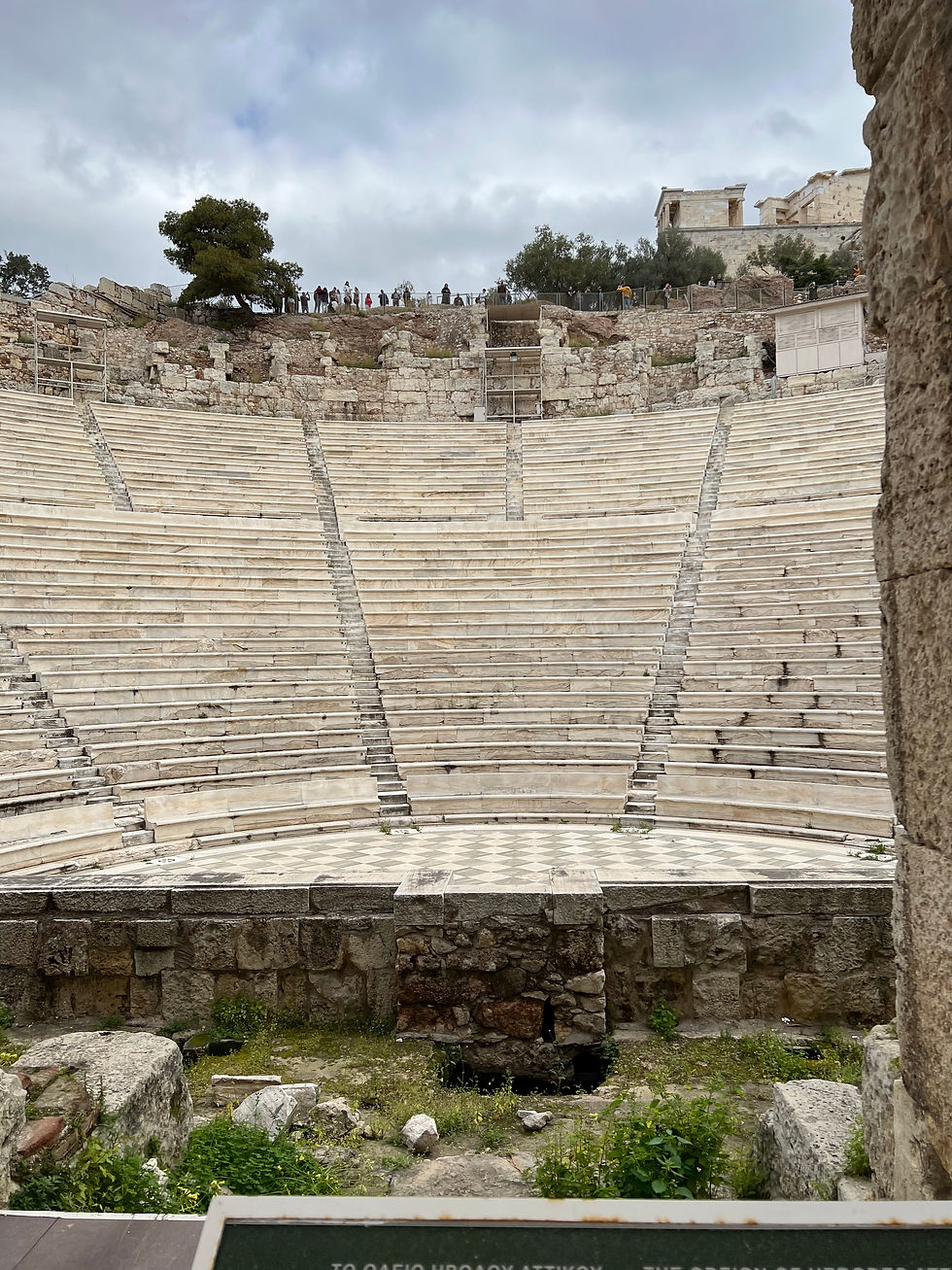
The answer is leisure time. The Greeks became proficient and then the Romans perfected agriculture, trade, and commerce. People did not simply survive from hunting and gathering to feeding and farming to feeding. With the advancement of trade and commerce, people obtained wealth. And with wealth comes the ability to pay someone else to work for you and then you have time on your hands. (Sadly, I must also note that wealth allowed Romans to buy people to do their work.)
With this newfound leisure, people began to have time to build. Time to read. Time to write. Time to travel. Time to eat lunch with friends. Time to debate which candidate would best serve their personal interests in the Roman Senate. I never think of time for leisure activities as a luxury item. However, if you are still privileged enough to know someone of the great generation that is living and can tell you stories, sit down and talk to them about what it was like to work constantly in an effort to survive the daily grind.
I envision plays during this time period as similar to current premiers of highly anticipated movies. People anxiously awaited the latest Marvel installment. They watched the actors on the red carpet. They eagerly shelled out money to see the latest and greatest. I have no idea if the ancients truly believed and worshiped their gods as we understand worship, but I do know the stories are incredibly entertaining. So much so, we still see them frequently performed in the year 2024.
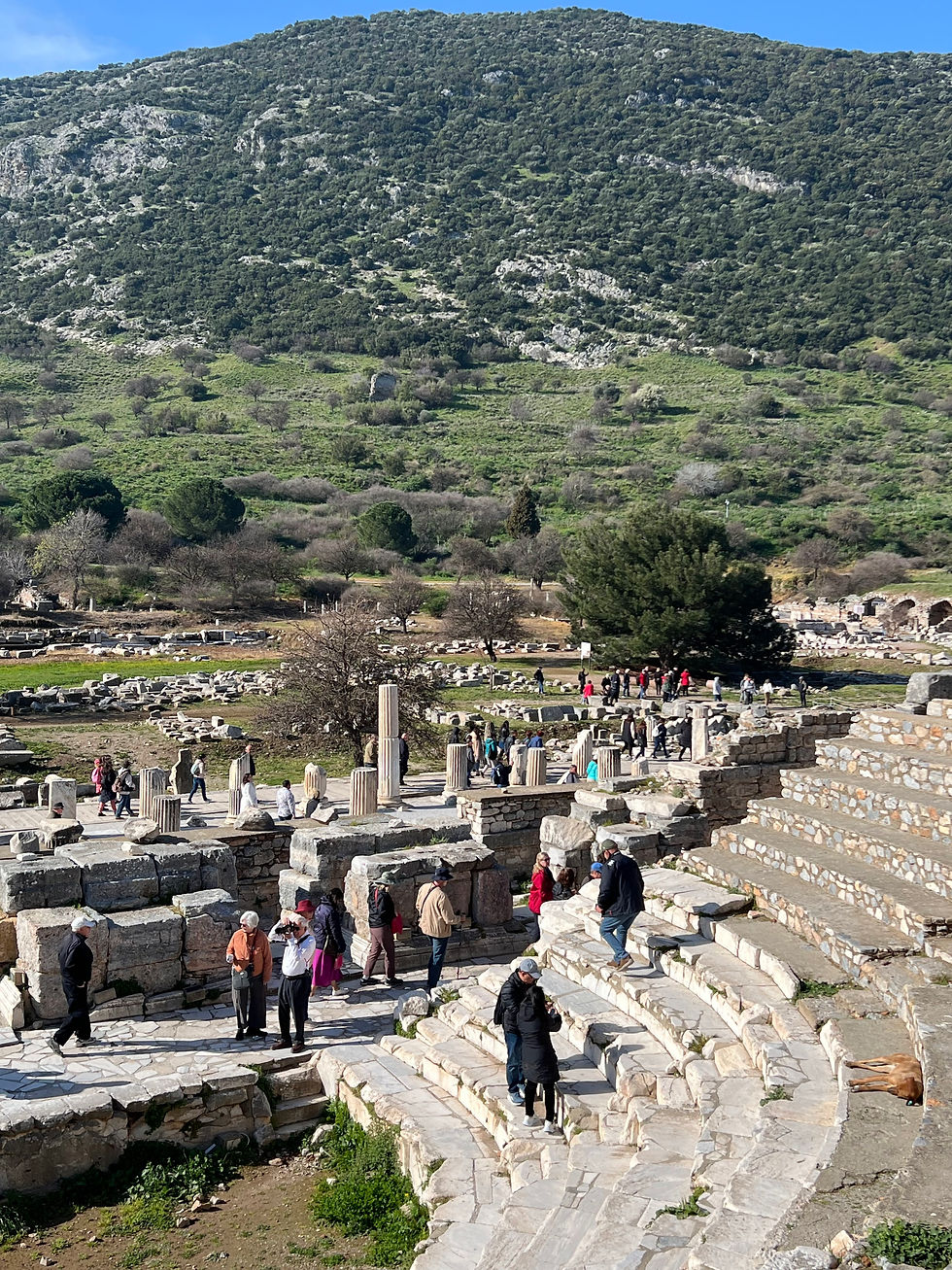
However, the playwrights depended on words. The ancient theater had limited ability to create special effects or scenery. The writer’s words had to be chosen carefully for maximum impact on the audience. Some props were available, primarily large masks that could be seen from anywhere in the theater. The symbols of the comedy/tragedy masks originated in this tradition. Ancient historians describe these masks as made of wood and elaborately carved. Sadly, they have all deteriorated and what we know about them comes through the words of the patrons of the plays.
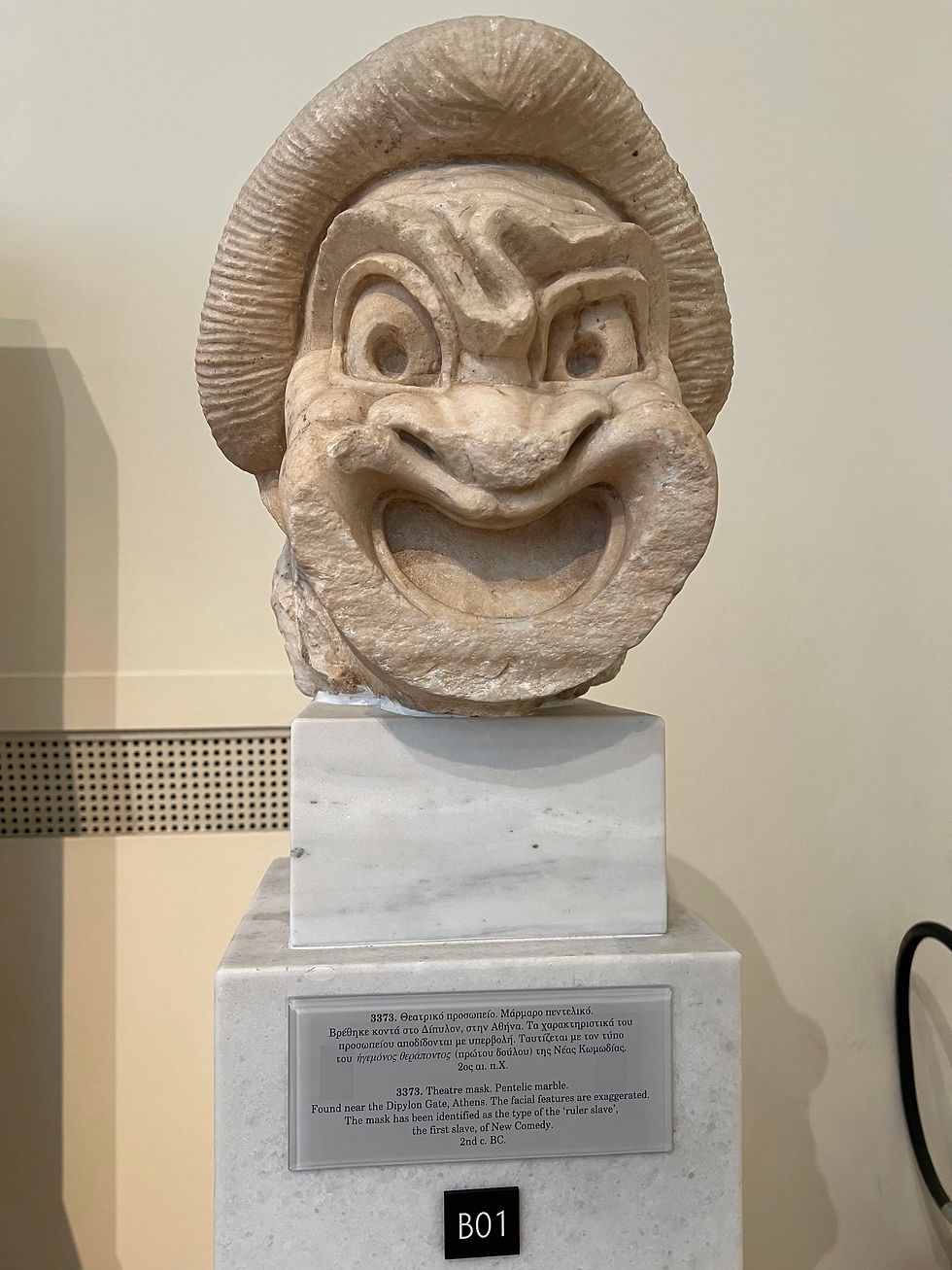
But take this guy as an example of what a mask would have been like. He survived because he is carved from marble. Being too heavy for any actor to wield, he probably appeared outside the theater as a marker of the day's events. One glance at this smiling face cued the people that the theater was in session, and the day's agenda was laughter.
Now back to John’s vision of Jesus in Revelation 1: 12-16. The problem in 95 AD was absolutely no different than the problem today. How do you explain to someone that Jesus Christ is real, and he came to this earth as both man and divine? How do you explain that he died to be the final sacrifice for human sin, so that one day, if you believe in Him, you can be reunited with your Holy Creator? Different time. Same Gospel message. But how is this different from any other myth?

For salvation to be experienced, a person first must believe that there is a Creator God who existed before all space and time. He created the universe and the earth and everything in it when He spoke. Once there was nothing, and then with His breath, all came into existence. Every person, at some point, must decide how they believe everything began.
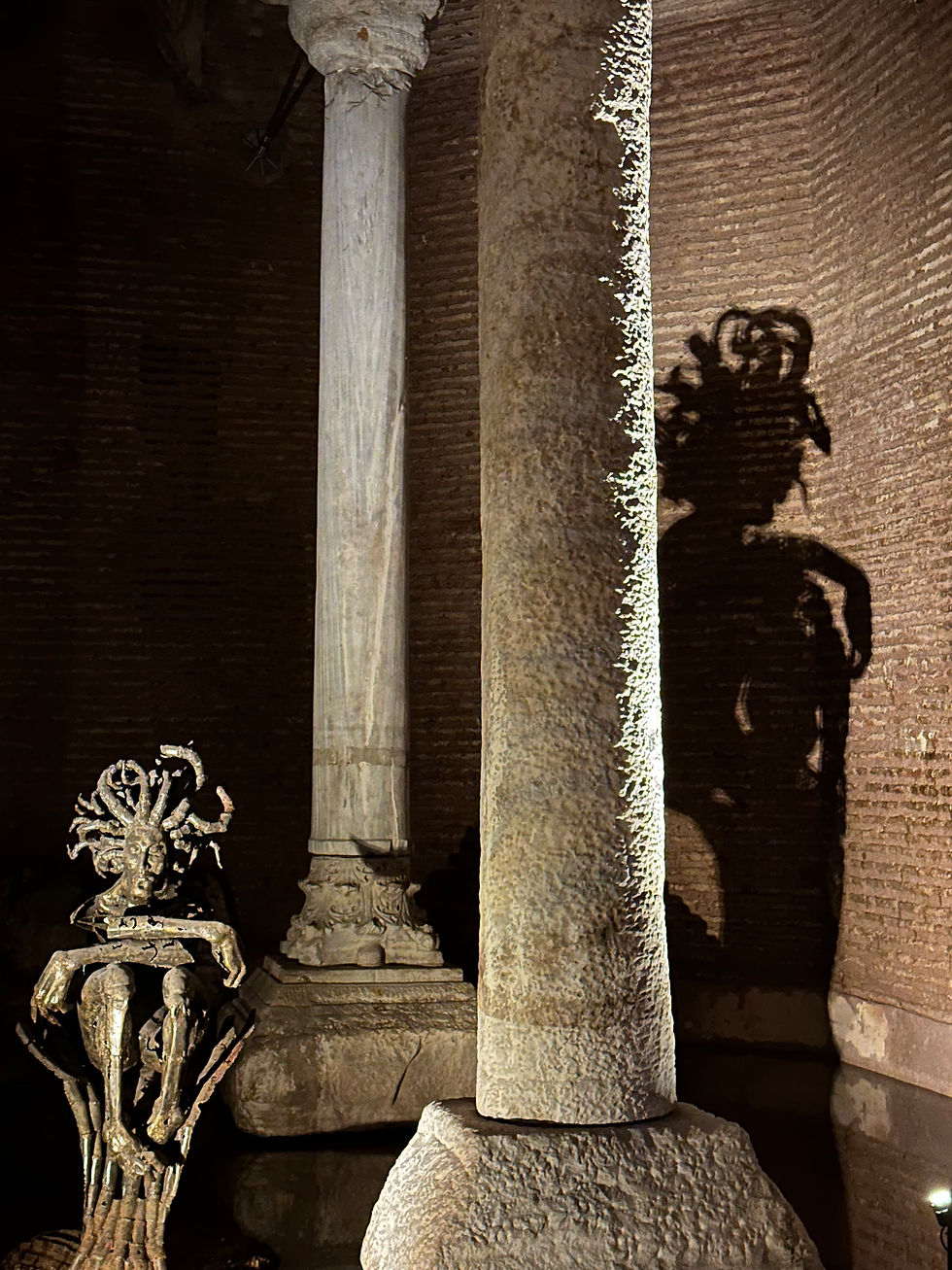
But what makes Yahweh any different from Zeus, or Jupiter, or Hera, or Gaia? Without exception, religions other than Christianity depend a great deal on guesswork. Rituals are followed and doctrine observed; however, the gods remain unknowable. The worshiper simply performs their best guess as to what sacrifices will be accepted and what works can be performed in order to earn their god's favor or prevent their wrath. No guarantees exist promising anything after this earthly life - no meaningful hope of ever reuniting with their god or their loved ones.
However, with Jesus, things are completely different. God’s word in the Bible helps us understand that once, we were united with our holy and perfect Creator and then sin entered the world. The first step to salvation is recognizing that you are broken and sinful. That is one of the devil’s favorite tricks - to convince us that we are “good people”. If you truly believe you are a good person, think about your thought life and every idea that runs through your head being presented to the public in live theater for everyone to see and hear. Think on that a while. (I know I would be convicted of multiple murders every time I drive from point A to point B, especially in a traffic circle. People are dumb and just cannot figure it out!)
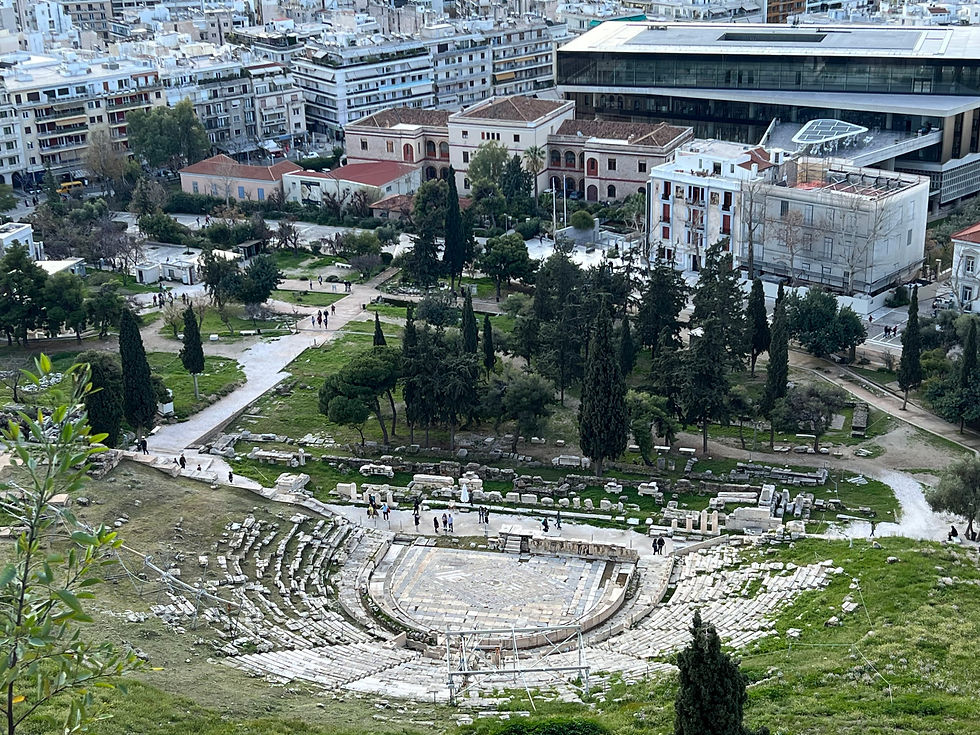
With Christ, there is no guesswork. He came as the Son of Man to this earth, to die a brutal death, so that when we pass from this earthly plane, if we believe in Him, we shall not perish but have everlasting life with our Holy Creator. I am a Christian because I know and understand that Truth. There is no guesswork. In Jesus, my sins are forgiven, and I will experience eternity one day.
But what does any of this have to do with John’s vision of Jesus? I have no idea if Jesus actually physically appeared to John in robes of white with a golden sash, hair white as wool, eyes like fiery flame, feet like fine bronze, and voice like cascading waters. I have no idea if John was using hyperbole to portray an image of a mighty Jesus. I have no idea if my understanding of the symbolism is correct. But what I do know is when Jesus appeared to John, John knew Him! What a wonderful peace that brings. Our God is knowable. He is the Son of Man. He comes to us in times of plenty or in times of need. Through His word, we can hear His voice. Lovingly and full of care or loud as a trumpet, our good Shepherd will appear. All we need to do is ask.
What a friend we have in Jesus. All my sins and griefs to bear. What a privilege to carry, everything to God in prayer. Thanks be to God.
Comments